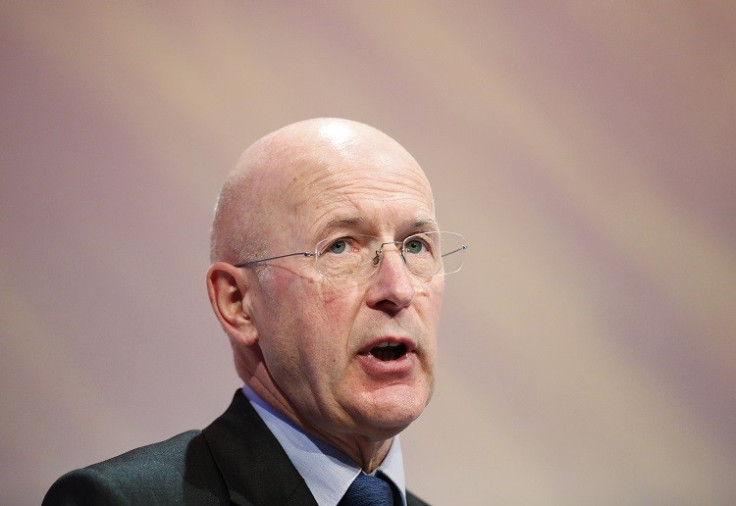RBS's Philip Hampton: Europe Rate-Fix Cartel Fine 'Sobering Reminder' of Bank's Past Failings [VIDEO]

Royal Bank of Scotland Chairman Philip Hampton said the bank's latest fines for attempting to fix the benchmark rates Euribor and Libor are a "sobering reminder" of past failures for which the state-owned institution is now paying.
The European Commission fined RBS along with seven other banks a combined total of €1.71bn for operating in two cartels in the euro and Japanese yen interest rate derivatives markets. RBS alone was slapped with €391m in fines for its bankers' roles in the cartels.
It follows a £390m fine settlement for Libor fixing from UK and US regulators in February, as well as millions more in fines and litigation costs for the mis-selling of derivatives to small businesses and Payment Protection Insurance (PPI) to consumers.
"We acknowledged back in February that there were serious shortcomings in our systems and controls on this issue, but also in the integrity of a very small number of our employees," said Hampton.
"Today is another sobering reminder of those past failings and nobody should be in any doubt about how seriously we have taken this issue.
"The RBS board and new management team condemn the behaviour of the individuals who were involved in these activities. There is no place for it at RBS."
RBS is 81% owned by the taxpayer after it was bailed out with £45bn at the height of the financial crisis.
Since then, as global regulators shine their torches through the wreckage of the global financial system, RBS has been caught up along with its competitors in a number of scandals because of past bad behaviour.
The numerous fines and billions of pounds in provisions put aside for litigation and compensation costs is hindering the UK government's desire to return RBS to the private market.
Chancellor George Osborne, who must balance the political as well as economic risk of reprivatising RBS, said it is unlikely to be sold off before the 2015 general election.
Pressure to return RBS to the market intensified after the government sold off 6% of its stake in Lloyds Banking Group, which was also backed by taxpayers after a financial crisis bailout. The UK government retains a 32.7% stake in Lloyds.
In June, the RBS Chief Executive Stephen Hester quit his role amid speculation that he was pushed by Osborne. The chancellor denied having a hand in Hester's ousting, which is said to have been over the RBS boss's lack of support for the government's banking reforms.
RBS said Hester had overseen the first phase of the bank's transformation through its balance sheet reforms, but the board wanted someone new to manage the second phase of reprivatisation.
Ross McEwan, the ex-chief of the Commonwealth Bank of Australia, was named as Hester's replacement.
During the third quarter of 2013, RBS posted a pre-tax loss of £643m, after taking a £496m accounting charge for an improvement on its own credit.
© Copyright IBTimes 2024. All rights reserved.






